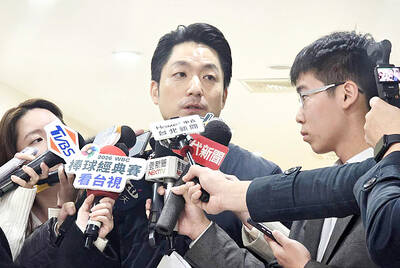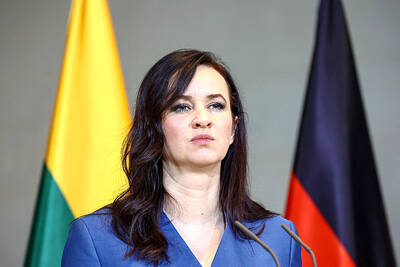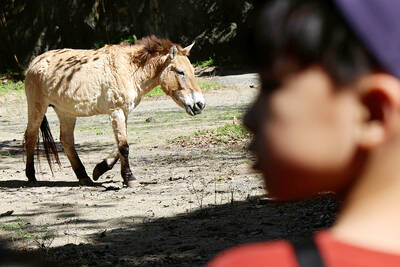The latest investigative report on dementia in Taiwan showed that the prevalence of the disease among those aged 65 and older stands at 7.99 percent, the Ministry of Health and Welfare (MOHW) said.
Department of Long-Term Care deputy Director-General Wu Hsi-wen (吳希文) said late last month that the ministry launched the investigation because the nation would officially meet the definition of a hyper-aged society — one out of every five people aged 65 or older — as of this year.
The ministry took samples based on household registration data and doctors’ house-call information on elderly people nationwide between 2020 and last year.
The ministry said the newest results were similar to the findings from a Taiwan Alzheimer’s Disease Association study conducted in 2011.
The study showed that the prevalence of Alzheimer’s in people aged 65 to 69, 70 to 74, 75 to 79 and 80 to 84 was 2.4 percent, 5.16 percent, 9.1 percent, 16 percent and 23.23 percent respectively, showing a positive correlation between age and the chance of developing Alzheimer’s.
The most recent study showed that Alzheimer’s in women at 9.36 percent, which is higher than men’s 6.35 percent.
The study showed that the top three most common forms of dementia were Alzheimer’s disease at 56.88 percent, vascular dementia, which is caused when decreased blood flow damages brain tissue, at 22.91 percent and Parkinson’s disease, at 7.12 percent.
Wu said that the government estimated that about 350,000 people are registered as having dementia, adding that the nation could see 470,000 people with dementia by 2031 and 680,000 by 2041.
The study also investigated behavioral and psychological symptoms of dementia, Wu said, adding that the most common was depression at 33.37 percent, fear or anxiety at 27.75 percent, repetitive behavior at 25.34 percent and delusion at 21.19 percent.

Travel agencies in Taiwan are working to secure alternative flights for travelers bound for New Zealand for the Lunar New Year holiday, as Air New Zealand workers are set to strike next week. The airline said that it has confirmed that the planned industrial action by its international wide-body cabin crew would go ahead on Thursday and Friday next week. While the Auckland-based carrier pledged to take reasonable measures to mitigate the impact of the workers’ strike, an Air New Zealand flight arriving at Taipei from Auckland on Thursday and another flight departing from Taipei for Auckland on Saturday would have to

The Taipei City Government yesterday confirmed that it has negotiated a royalties of NT$12.2 billion (US$380 million) with artificial intelligence (AI) chip giant Nvidia Corp, with the earliest possible signing date set for Wednesday next week. The city has been preparing for Nvidia to build its Taiwan headquarters in Beitou-Shilin Technology Park since last year, and the project has now entered its final stage before the contract is signed. Taipei Mayor Chiang Wan-an (蔣萬安) said the city government has completed the royalty price negotiations and would now push through the remaining procedures to sign the contract before

The Ministry of Foreign Affairs on Thursday said the name of the Taiwanese Representative Office in Lithuania was agreed by both sides, after Lithuania’s prime minister described a 2021 decision to let Taiwan set up a de facto embassy in Vilnius as a “mistake.” Lithuanian Prime Minister Inga Ruginiene, who entered office in September last year, told the Baltic News Service on Tuesday that Lithuania had begun taking “small first steps” aimed at restoring ties with Beijing. The ministry in a statement said that Taiwan and Lithuania are important partners that share the values of freedom and democracy. Since the establishment of the

Taipei Zoo welcomes the Lunar New Year this year through its efforts to protect an endangered species of horse native to central Asia that was once fully extinct outside of captivity. The festival ushering in the Year of the Horse would draw attention to the zoo’s four specimens of Przewalski’s horse, named for a Russian geographer who first encountered them in the late 19th century across the steppes of western Mongolia. “Visitors will look at the horses and think that since this is the Year of the Horse: ‘I want to get to know horses,’” said zookeeper Chen Yun-chieh, who has been